Fuel cost comparison
Want to know how much you can save by switching to gas or how designating more of your gas supply as Renewable Natural Gas1(RNG) might affect your bill? Use our home energy calculator, or check out the graphs below to see approximate annual space heating cost comparisons for typical households in your area.2
Lower Mainland and Squamish
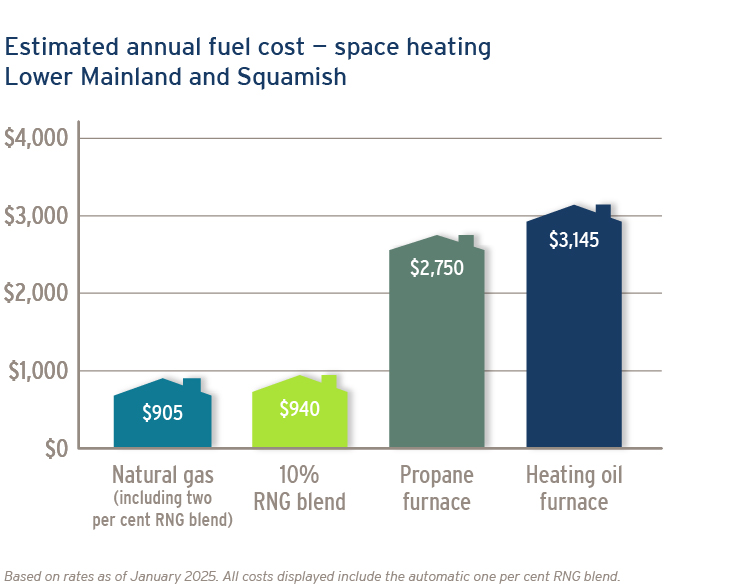
Vancouver Island and Sunshine Coast
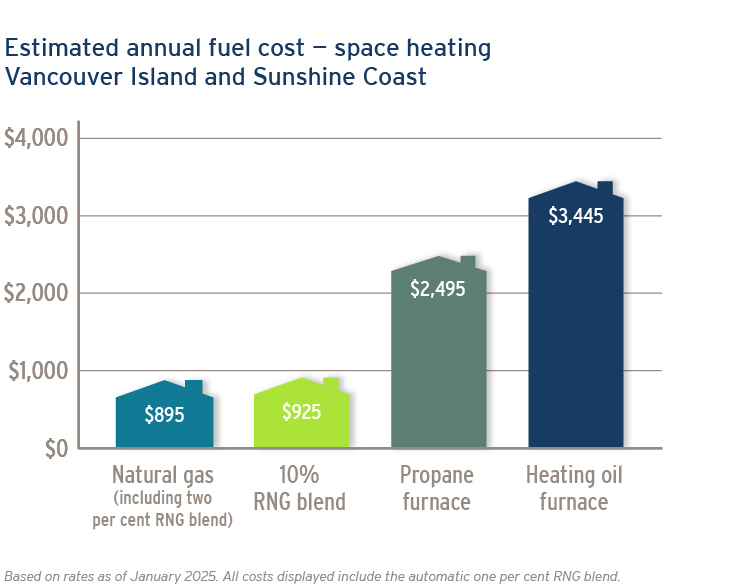
Whistler
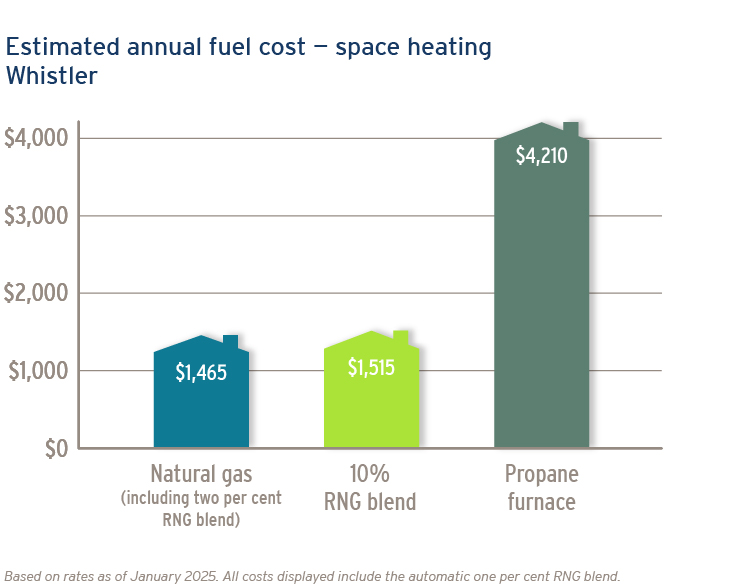
Northern Interior
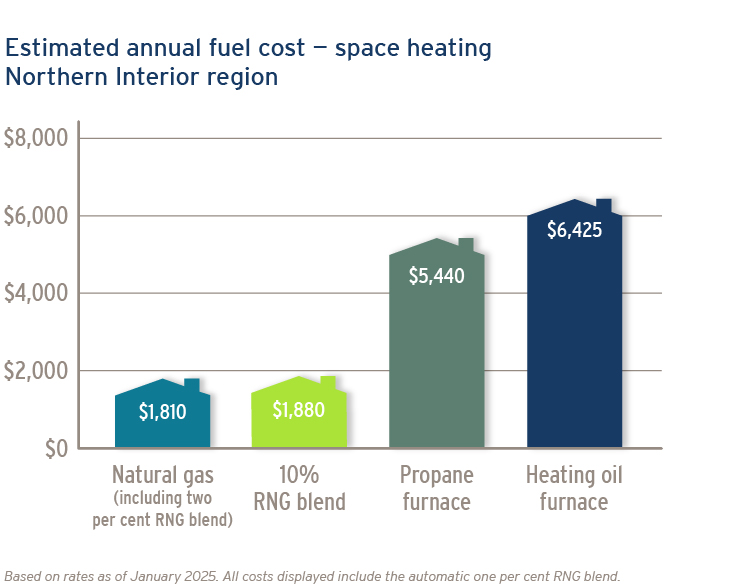
Southern Interior
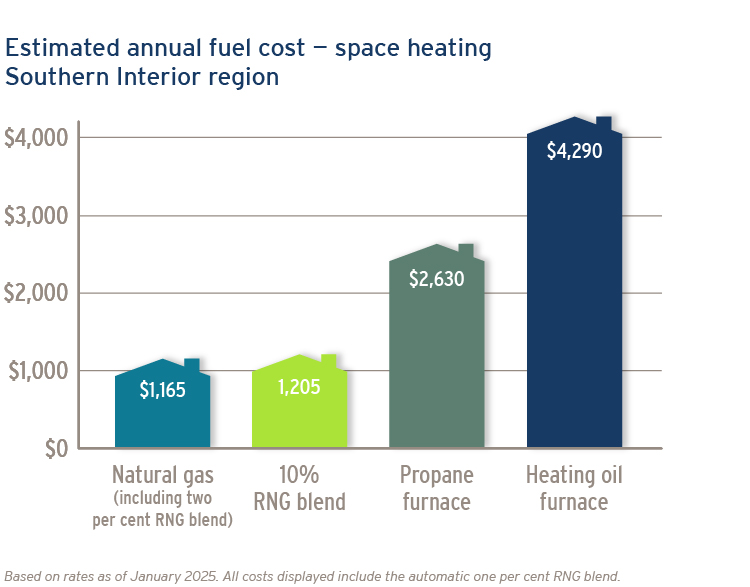
1Renewable Natural Gas (also called RNG or biomethane) is produced in a different manner than conventional natural gas. It is derived from biogas, which is produced from decomposing organic waste from landfills, agricultural waste and wastewater from treatment facilities. The biogas is captured and cleaned to create RNG. When RNG is added to North America’s natural gas system, it mixes with conventional natural gas. This means we’re unable to direct RNG to a specific customer. But the more RNG is added to the gas system, the less conventional natural gas is needed, thereby reducing the use of fossil fuels and overall greenhouse gas emissions.
2These are approximate annual costs for space heating of a typical household in specific FortisBC service areas as identified. A typical
household is defined as a single family house approx. 2,300 square feet with average insulation. Anticipated savings will be the difference between annual Renewable Natural Gas (RNG), natural gas, heating oil or propane costs for various heating equipment.
Calculations compare the most energy-efficient heating equipment currently available for natural gas furnace heating, oil furnace heating and propane furnace heating. The calculations are based on FortisBC natural gas rates as of January 2024,
and heating oil and propane rates as of November 2023 (source: Home Heating Oil & Propane Study, The Sentis Group, November 2023). Calculations include applicable carbon tax as of April 2024. The cost of RNG depends on the blend you choose. The
FortisBC biomethane (or RNG) rate is as of January 2024. You can designate five, 10, 25, 50 or 100 per cent of the natural gas you use as RNG. You'll also receive a credit on the B.C. carbon tax on your bill, depending on the blend you choose.
Savings may vary by household and do not include potential rebates and/or incentives.